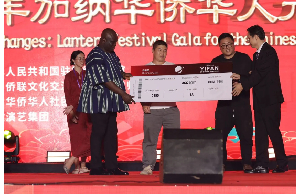As the nation seeks solutions to its numerous economic hardships the question about the connection between the nation’s economic management and the academic research of our various institutions require elaborate answers.
Is there a deliberate programme that seeks to tap into the pool of academic research in the custody of our educational institutions? The answer to this pertinent question needs no empirical studies. It is an obvious no. This position is premised on evidence from our economic management practices over the years. How many times have our economic managers not travelled cup in alms for financial resources and so called economic relieves?
Admittedly, Ghana by convention is a member of the International Monetary Fund and other international agencies. The IMF for instance offers support in a form of a bailout to its distressed members. The country has had various programmes with the IMF. (1967, 1972,1983,1999,2001 and 2009). Currently, the country’s economic managers are once again implementing various economic policies owing to a 1 billion bailout agreement reached with the IMF in February 2015. Again I ask: what has been the outcome of similar programmes with the IMF and other foreign organisations in the past?
More often than not, support from these institutions is associated with critical conditionality’s that end up worsening the plight of member states. Second to this, is the westernised nature of such interventions that is usually at variance with prevailing African conditions. Amidst these issues, my solemn believe is that instituting a deliberate programme to liaise with our academic institutions for their research input is the surest way to avoid deteriorating our economy so as to necessitate the engagement of IMF or any international body for a bailout.
It is unconscionable for a nation to commit huge financial resources to the development of its tertiary institutions and still refuse to incorporate their research findings into critical economic decisions. A visit to the libraries of our various institutions revel the premium we place on the academic research of Ghanaian students and our education at large. Research documents (thesis) are often left to gather tremendous dust on library shelves as our economic managers settle for foreign policies which are not in tune with the Ghanaian economy. This scenario is perfectly synonymous with the famous quote of Bob Marley: ‘the fool is thirsty in the abundance of water’.
Obviously, resorting to the research work of tertiary students to resolve basic economic and social challenges is the last thing on the minds of our administrative and political authorities. Should the call for local patronage not include tapping into the academic research of Ghanaian students? My contention is that our economic hardships are better known to us than any foreign institution or agency. This is the more reason why we cannot abandon academic research of Ghanaian students in our quest to build a prosperous and a better Ghana.
By: Samuel Dobbin, Mphil Marketing Student,
University of Ghana Business School
Email: Samueldobbin@yahoo.co.uk
Opinions of Friday, 10 July 2015
Columnist: Samuel Dobbin















